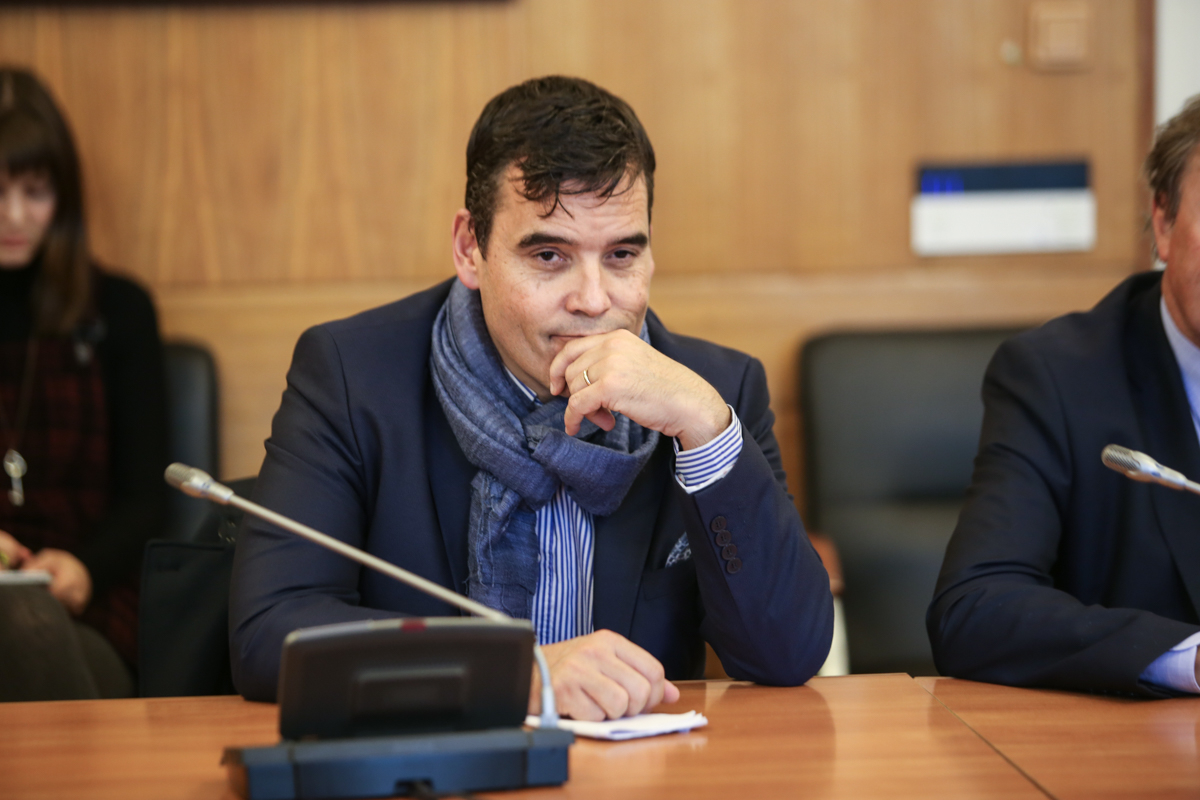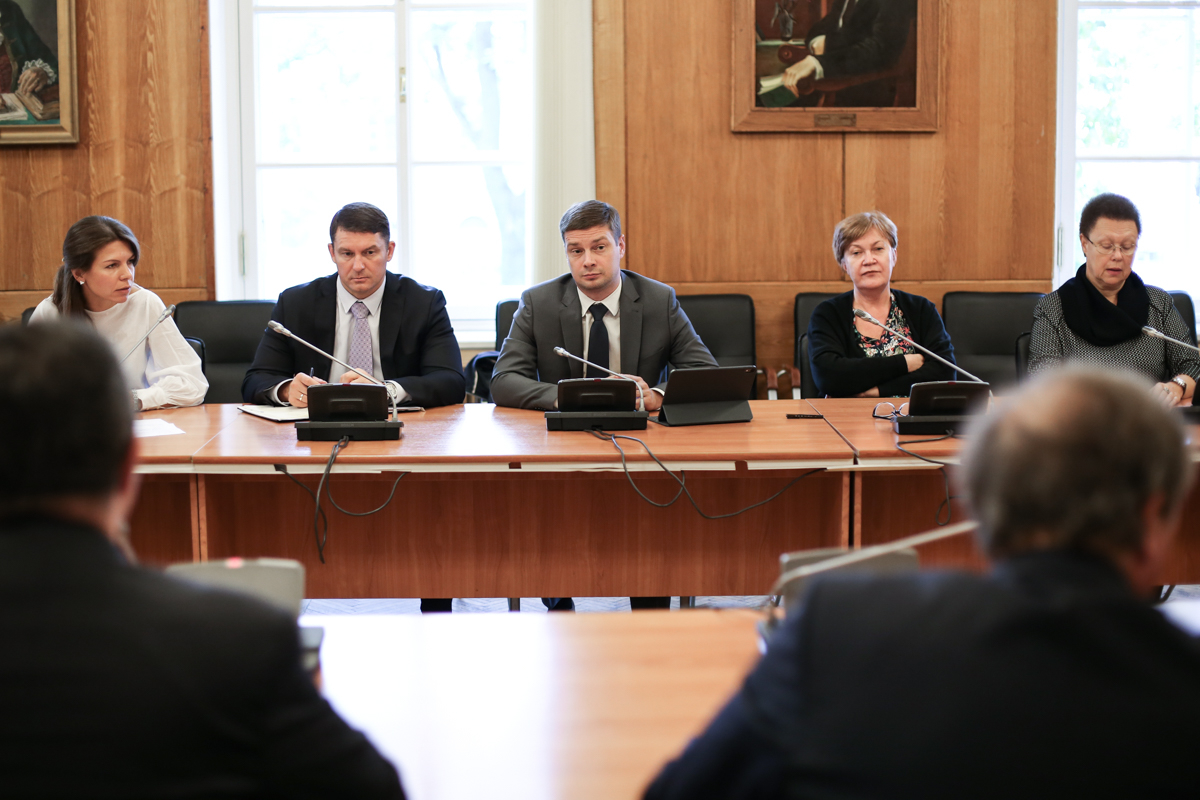Why linguists are not the only ones who need to know French – Advisor on Collaboration and Culture from French Embassy visits St Petersburg University
Fabrice Rousseau, the Advisor on Collaboration and Culture at the French Embassy and Director of the French Institute in Russia, has made his first official visit to St Petersburg University. During this meeting, he and University officials discussed the teaching of French and also research and academic cooperation.
Welcoming his guest, Sergey Andryushin, Deputy Rector for International Affairs at St Petersburg University, noted that the traditions of studying French in Russia are deeply rooted. The University has been working together with the French Institute for many years. Among its partners in the field of higher education are the leading universities and colleges in France, with which St Petersburg University has set up joint academic programmes. Scholars from St Petersburg have regularly taken part in exchange programmes and done research with their French colleagues, not only in the humanities but also in the sciences – Mathematics, Physics, Chemistry and Biomedicine. Recently, cooperation in the field of Arctic research has been developing rapidly. Student exchanges have also been increasing, and the number of agreements with French colleges and universities within the Erasmus+ programme has risen appreciably.
At St Petersburg University, approximately 400 philology students major in French, and another 500 students in a wide variety of programmes have chosen it as an elective. Traditionally, it is students in International Relations, Journalism and Asian Studies who show a great interest in French. At the same time, in those fields where it is not compulsory, for example Sociology or Law, interest tends to be lower.
‘It is unlikely that any other language, except for English and Chinese, can compete with French. Students like it because they associate it with the history and culture of the city. But today’s students have become pragmatic. They choose to study languages they can tie in with their future training and education, and possibly with their academic research,’ explained Ekaterina Ivanova, a professor in the Department of Romance Philology at St Petersburg University and director of the French University College academic programme. ‘Here too, the availability of serious Russian-French academic projects is an important incentive, promoting interest in the French language.’ She added that, for St Petersburg University, the establishment of a double-degree programme with the Sorbonne is a natural progression in the development of the French University College non-degree programme and makes it possible to take the relationship between Russian scholars and their French colleagues to a new level.
Mr Rousseau let it be known that cooperation between the French Embassy and St Petersburg University is thriving and expressed his gratitude to Rector Nikolay Kropachev for his contributions to the growth of the partnership between the University and the Sorbonne.
‘You said that students who major in Sociology do not study French. But we know full well what a crucial role France has played in the development of contemporary sociological thought. We need to get the message across to students that if they want to work in this field, English alone will not be enough for them to get by.’
Fabrice Rousseau, Advisor on Collaboration and Culture at the French Embassy and Director of the French Institute in Russia
The book collection in the Philippe Habert Library, given to the University by the French Embassy, will make it clear to students the scope of the contribution that French thinkers have made to academia. This collection of books will promote the development of research not only in the field of French studies but in other fields as well. The M. Gorky Scientific Library at St Petersburg University is one of the largest university libraries in the world, and it currently has more than 7 million publications in its collection. Many of these books are in French, and of special note is the collection of French illustrated editions from the 18th and 19th centuries, which is also an object of research. A supplement to the University collection, the Philippe Habert Library is accessible not only to students in the French University College programme but to all students.
‘We have also accrued digital resources, and in this respect St Petersburg University is in the forefront among universities – it has the best collection of foreign electronic resources in the country. They account for 90 percent of our subscriptions. But there are precious few French publications,’ Marina Karpova, Director of the M. Gorky Scientific Library, informed the audience as she brought her speech to a close. ‘We need a sharing of experience among the staffs of university libraries in the two countries, and we would like to know how teaching is conducted in France with the help of licensed electronic resources.’
During the meeting, the two parties discussed the date of the ceremony that will officially mark the turning over of the Philippe Habert Library to the University. Mr Andryushin also told the French diplomat about St Petersburg University’s industrial partners, who are eager to carry out applied research and are ready to support the establishment of new laboratories.






